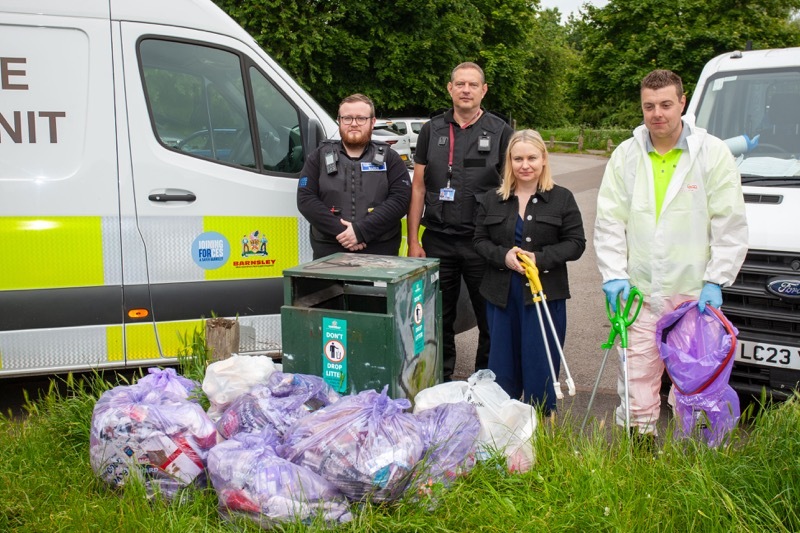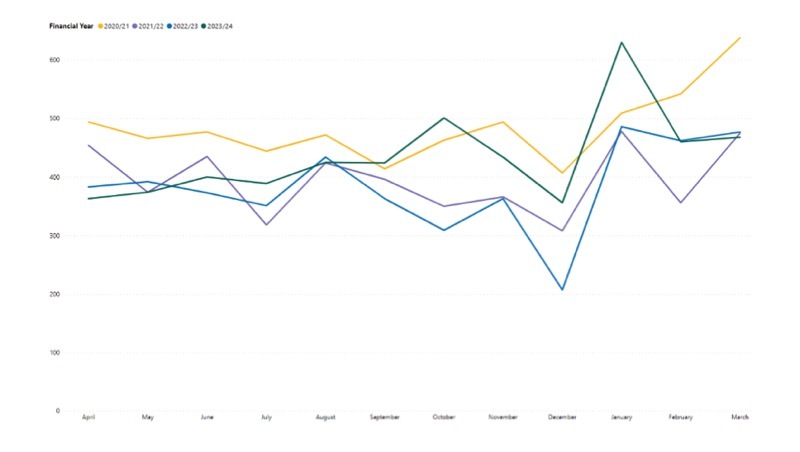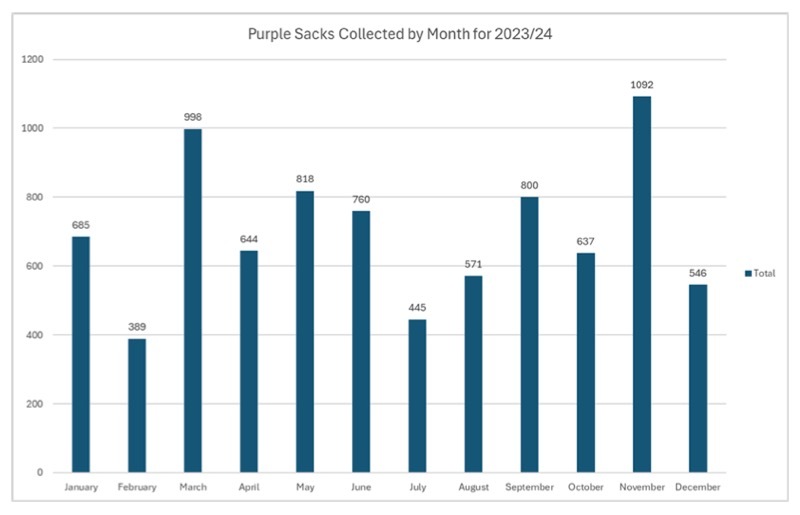TOUGHER fines will be handed to anyone caught fly-tipping in Barnsley after ambitious plans were announced to significantly clamp down on offenders and clean up the borough’s image due to rising cases.
Clearing up instances of tipping cost taxpayers in the town £265,000 in the last financial year, prompting council bosses to set up a steering group alongside an army of litter-picking residents who insisted the matter becomes a key priority.
Documents released this week show 1,225 fixed penalty notices were handed out for ‘environmental’ offences - which includes everything from discarding cigarette ends to large-scale tipping - while just seven people were prosecuted at court and 11 vehicles involved in more than 4,500 dumping incidents were seized.
However, residents have voiced concerns that the figures aren’t enough and the council’s new ‘litter and environmental crime plan’ - set to be approved by ruling cabinet members on Wednesday - sets out a tougher stance up to 2030 just a week after Barnsley was named the fourth-worst place in the country for fly-tipping.
A two-tiered approach to fly-tipping fines will be adopted, the Chronicle understands, which will see a £400 penalty for between one and five bags’ worth of waste left, while five or above will climb to £1,000.
Graffiti cases will see fines double from £100 to £200, while householders’ punishments for allowing illegal waste carriers to take rubbish away will also double from £200 to £400.
Dropping cigarette ends and failing to pick up dog fouling - two of the most prevalent issues - will both remain at the current £100 level.
A report, compiled by head of the Safer Communities department Paul Brannan, said: “Environmental crime is identified, year after year, as a priority for the people of Barnsley in the annual community safety survey.
“To ensure that the strategy reflects the views and needs of local people who care about the environment, we held a networking event for all volunteers who are involved in litter-picking and other environmental activities.
“We invited them to join us in co-producing the litter and environmental crime plan for the borough, and they formed a forum with representatives from different areas of the borough to work with the council officers and councillors.
“We wanted to co-produce a plan that recognises the benefits of working together rather than in individual silos as there are great levels of volunteer participation in the borough, and we have limited resources and need local intelligence and solutions.
“They are the eyes and ears of our communities and can help us identify the problems and improve the situation.
“Co-production is key to tackling this issue in Barnsley and making it more inclusive and effective.
“It is proposed that the council apply new maximum fixed penalty tariffs to several environmental offences.
“When considering any penalty increase, it has been important to consider both proportionality and comparability.
“For example, most littering offences dealt with via fixed penalty in Barnsley are for the discarding of cigarette ends, so it would feel disproportionate to increase the fixed penalty rate for such an offence above £100 given the nature of the offence and when compared to dog fouling, which is set at £100.”
Fly-tipping levels both nationally and in Barnsley peaked during the Covid-19 pandemic and after lockdown easing, but the trend reversed before starting to increase again recently.
“Littering and illegal dumping create problems for communities and result in unnecessary expenses for services,” Mr Brannan’s report added.
“When the environment is degraded, it often indicates broader deterioration, affecting public spaces, quality of life and people’s sense of pride in their community.
“The national estimated cost of fly-tipping to the public purse rose from £209m in 2015 to £392m in 2018/19.
“These costs are estimated to have increased further since 2019, with national records for amounts of fly-tipping continuing to show an upward trend.
“Street cleansing, which includes clearing litter and fly-tipping, cost local authorities £743m in 2021/22.
“In simpler terms, these costs are considered avoidable because they don’t factor in the significant amount of time community members volunteer to clean up.”
Anna Hartley, executive director for public health and communities, praised volunteers for both their continuous clean-up work and their help in forming the plan.
“There is no excuse for littering and environmental crime and it will not be tolerated in our borough.( “By applying new maximum fixed penalty tariffs, we aim to send a strong message to anyone considering dumping waste illegally.
“This provides opportunities to work together and collaborate further with partners, community groups and volunteers for the benefit of our borough.”





























